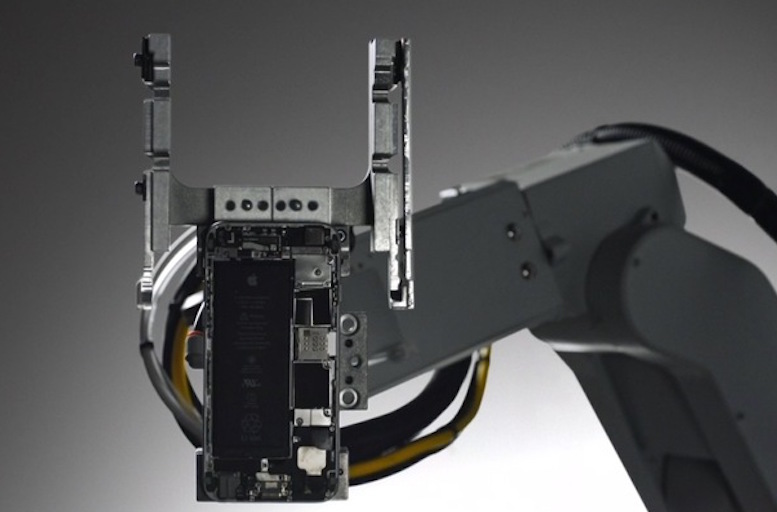Hot on the heels of a recent report claiming Apple now sees GenAI as a basis for complex product ideas including humanoid robotics, we learn that it wants to put more robots on the iPhone assembly lines.
Manufactured in factories by robots
Designed in Cupertino and manufactured by robots, that Apple wants this isn’t especially surprising. Manufacturing partner Foxconn is known to be at the forefront of building smart and highly automated factories.
Even in 2016 it was known to have 40,000 robots in place across lights out factories and the drive to automation was flagged up even then.
As robotics improves it makes business sense to put more advanced robots on production lines, the latest surge in a flood of AI-supported automation that will without doubt impact employment across every section of society.
Apple aims to cut 50% of workforce, maybe
Now a report from The Information confirms the extent of Apple’s plan. It intends to reduce the number of workers on its iPhone assembly lines by up to 50% over the next few years. This will require investment in additional automated systems at huge costs, which some Apple partners may not be able to stomach.
Why does Apple want these systems in place? To reduce its reliance on human workers, as robots don’t get sick, don’t eat, and don’t demand things like fair wages for a fair day’s work. At the same time, loss of employment at this scale will impact the economies of Apple’s partner companies.
But not there yet
Apple has been investing in smaller tech firms to help it build and deploy automated manufacturing systems. Most recently it invested in DarwinAI, which used vision intelligence to monitor for defects. The company has also acquired Drishti, which identifies and remediates assembly line bottlenecks, it may also have purchased other relevant assets.
The plan has hit snags, however.
A report explains the robots have difficulty fitting some smaller pieces with precision, suggesting there’s still some need for human workers in the iPhone factories. The report confirms manufacturing headcount across Apple’s manufacturing partners have fell from 1.6 million to 1.4 million in 2023.
No future
But rest assured, even as your iPhone (in some nations) will help you write resumes to send to automated systems designed to reject them, the jobs some had anticipated would be distributed globally as the US trade sanctions on China continue will still be scarce because beyond product quality testing and soft skills marketing, it will be robots doing the work. At least until the system implodes, broken apart by its own contradictions, chronic wealth inequality, and lack of respect for life.
Please follow me on Mastodon, or join me in the AppleHolic’s bar & grill and Apple Discussions groups on MeWe.
Dear reader, this is just to let you know that as an Amazon Associate I earn from qualifying purchases.

